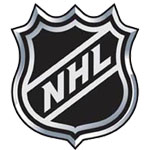|
The 2004-2005 season of the National Hockey League didn't exist. For only the second time in post-war history, not one professional hockey game was played in the United State or Canada. The first NHL Lockout of The 21st Century is history, but even with all of the changes installed per agreement between players and management, no one really knows if The NHL will rebound from a shutdown where fans polled actually didn't even miss the game. What caused this state of affairs?
 |
| Can The NHL Survive?
|
Conventional wisdom has pointed to declining TV ratings and rising player payroll. Between 1994 and 2004, NHL regular season ratings fell from 2.0 to 1.1, or from 2 million households watching to just over 1 million. But a closer look with a click reveals another possible reason for this decline: an unstable television contract that saw the NHL change network homes three times during this period. (By contrast, the NFL enjoyed a seven year, $18 billion agreement, which only caused Fox to take the place of NBC, but ABC and CBS remained, with ESPN taking a larger share of the games televised - but ESPN is owned by ABC / Capital Cities.)
The NHL jumped from Fox to ABC for regular season game broadcasts, and from Fox to NBC to ABC for All-Star Games during this same 1994 to 2004 period. When Fox hosted the NHL, the regular season ratings went from 2.1 to 1.4 over a five-year period. Then, when the game switched to ABC, ratings decreased from 1.3. to 1.1. (This was true, even as the ABC TV Contract was dramatically larger than that with the Fox Network -- click here to see the evidence.) While this decline is fairly constant, I contend that the reason for it can be directly traced to how the NHL's product is presented on the network.
Now, admittedly this is a reach, as there's no data to support my claim, other than what I presented. I think it just so happens that the numbers are lower as the year's progress, but it's not due to the passage of time. I do believe how hockey was marketed to the public by the networks was the big difference. Now, by that, I mean how often the NHL was promoted in network commercials and other efforts.
This doesn't mean that escalating player salaries were not a problem. As you can see if you click on the link to the SBS webpage showing average team payroll, and how it swelled from 1994 to 2004, it was. But some have said that league-wide attendance also contributed to the overall problem of spending more than was being taken in.
If you click on this sentence, you can have a look at attendance from 1994 to 2004 - it actually shows annual average attendance increasing from just over 14,000 to just over 16,000. There's no evidence of an overall drop, even as the NHL was adding teams over this period of time.
Toward Better, More Innovative Management of the NHL
The NHL is in a battle for the dollars spent by the causal fan - that person who really doesn't fanatically follow pro hockey, but could be enticed to see a game on TV. Just changing the speed of the game, while a great start, will not help. The NHL has to build a ready base of fans to make sure these problems don't surface again. Thus, I suggest the NHL: adopt the story-based marketing used by the World Wrestling Entertainment (WWE) organization, and work to build hockey programs for kids around the country.
WWE promotes its stars as the center of its telecasts, and even provides a little soap-opera-like drama. But it works, and the popularity and name recognition of stars like The Rock and Hulk Hogan is proof of this. By supporting high school football, the NFL maintains a garden for the cultivation of the fan of the future. The NFL - and more so the NBA -- is also at the forefront of the mating of rap and hip-hop culture with the sport product.
If the NHL is to survive into the future, it must pay attention to the needs America's urban youth, and tap into the melding of sports and music - something it has shown little evidence of doing in the past.
Share your view with SBS. Click on "Comments" below:
|
Click to read the first page of Paris Hilton and Sports Marketing
|